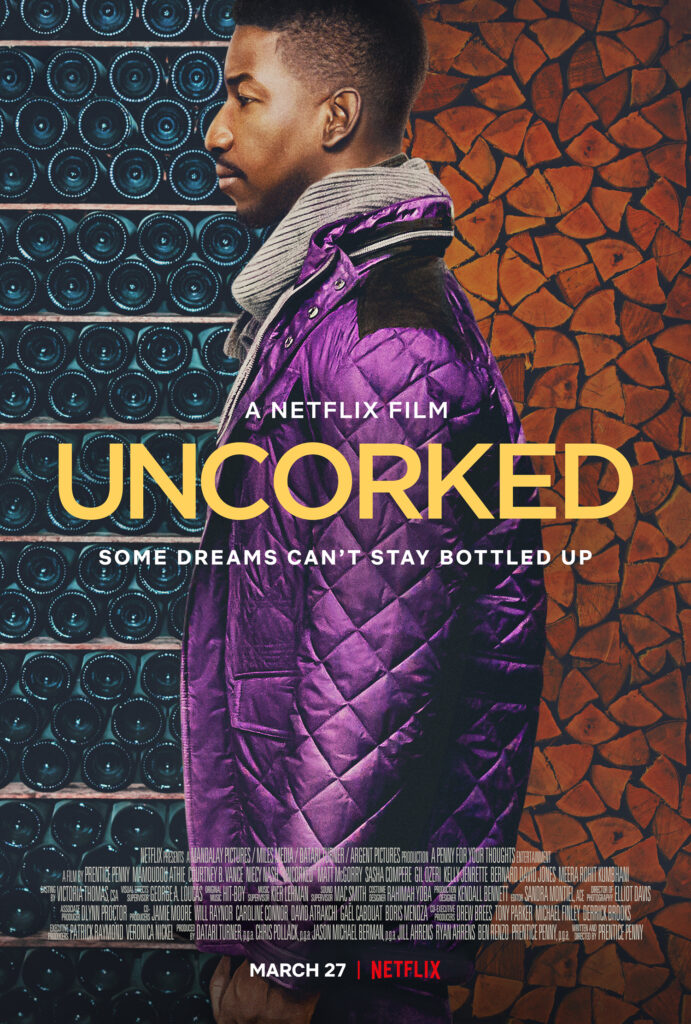Reviewed by Agam Iheanyi-Igwe
Associate Professor of World Christianity, Bushnell University (OR)

Uncorked is a thought-provoking drama exploring the tension between family expectations and following one’s dreams. Set in Memphis, Tennessee, the film follows Elijah (played by Mamoudou Athie), a young man torn between his father’s desire for him to take over the family barbecue restaurant and his own dream of becoming a master sommelier.
The film explores wine culture in connection to the African-American experience in a way that is rare in cinema. It opens by showing the smoky, bustling, family barbecue business where Elijah works. The restaurant is run by the authoritarian father Louis (Courtney B. Vance) and Elijah’s supportive mother Sylvia (Niecy Nash). Viewers are then quickly transported to the quiet wine shop where Elijah also works and where he displays his real passion as he helps a new customer pick out wine. “A pinot grigio is like Kanye West,” he explains to the customer. A Riesling is like Drake, and Chardonnay—“the granddaddy of wines”—is like Jay-Z.

The contrast of both scenes sets the stage for the many tensions in the movie: Elijah’s drive to pursue his personal aspirations versus his love for his family and its legacy; his family’s working-class roots, as opposed to the sophisticated world of sommeliers; and the perennial tension between love and duty. As the film unfolds, Elijah registers for a preparatory course, which includes mandatory study abroad in Paris, to prepare for the exclusive and challenging sommelier exam. He studies together with some new friends who also aspire to master sommelier status.
Uncorked’s innovative exploration of vocation highlights the complexities in the discovery and pursuit of a calling—particularly with respect to the challenges that arise when trying to reconcile personal desires with familial and social expectations. While the story centers on the protagonist, it also features mentors, cheerleaders, and fellow travelers on the vocational journey. Without spoiling the plot, Uncorked reminds us that tragic experiences can affect vocational aspirations and emphasizes the importance of having a support system when exploring them. The film is realistic about failure, while exploring tense intergenerational relationships and also surfacing themes of privilege reminiscent of a recent NetVUE Big Read—Patrick Reyes’s The Purpose Gap.
Instructors can use Uncorked to facilitate conversations about the nature of vocation, especially in relation to the challenges students face when they pursue a vocation that deviates from family traditions. The film also illustrates how tradition and innovation interface in exploring a calling, and how our vocations intersect with and emerge out of the opportunities that are available to us. For those students who feel that they must choose between their passion and their family, the questions this film raises may help them reflect on their own notions of vocation and calling. The movie’s ambiguous—and to some viewers unsatisfying—ending underscores the perspective that vocation is more of a journey that one pursues, rather than a destination at which one arrives. With all these themes in play, Uncorked invites us to enter conversations that are so valuable, yet often difficult to get started.


